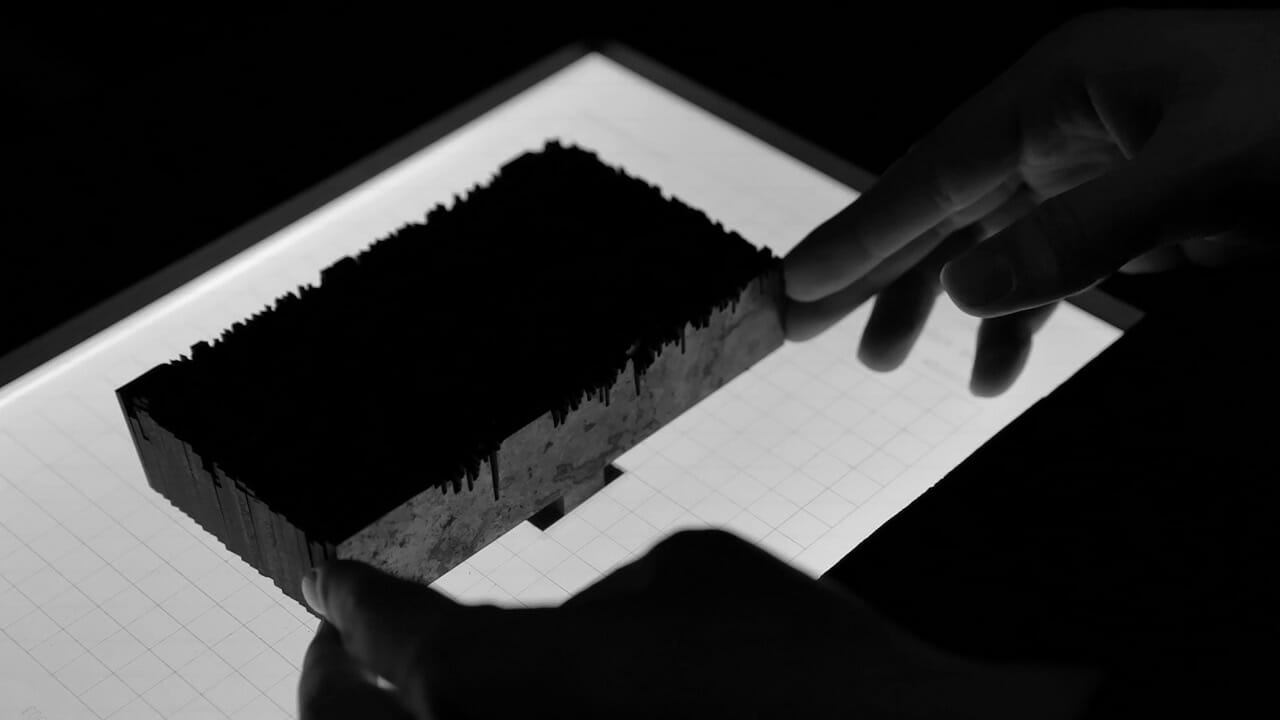Interview by Marielle Saums
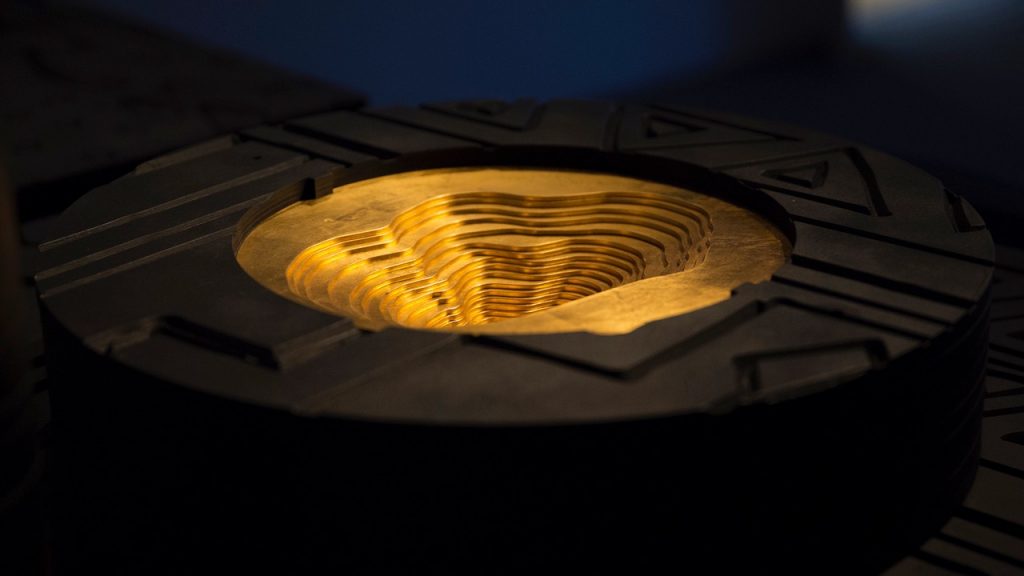
Christopher Lutterodt-Quarcoo (CL-Q for short) is a multifaceted creative investigator whose work is rooted in the complexities of living as an African in a world shaped by Western colonialism. He strives to build collective cultural competence by merging historical inquiry with the analytical processes that he learned as a design student. Working across film, writing, installation and sound without being tethered to a specific medium, CL-Q uses seeks to upheave dominant historical and political narratives.
Design underlies CL-Q’s work by emphasising the importance of community interaction and engagement in the research process. He recognises the value of integrating design principles to revive other disciplines, such as politics, archaeology and history, revealing questions that educational institutions and governments have not yet considered.
CL-Q responds by creating visuals and objects that encapsulate the heavyweight of dismantling bureaucratic legacies, often captured as figures obscured by shadows and projections of archival images on human bodies that link the historical with the personal. His ongoing Unmaterialised™ archive presents findings of the targeted historical inquiry, and The Adv_™ Forum designs workshops to facilitate dialogue and empathy around sociopolitical issues.
CL-Q strives to use design processes to both simplify and experiment with language. As an artist who openly advocates for the free dissemination of knowledge, CL-Q’s decision to trademark his two major projects as proprietary design services evoke questions about ownership of knowledge and process. CL-Q wants to expose power structures to instil doubt, yet his own developmental methods are obscured from the audience.
When discussing the challenges he encounters in his work, he only alludes to the demanding complexity that goes into developing each Unmaterialised™ project. If we don’t necessarily get (or even need) answers, then what exactly are the new methodologies that emerge from CL-Q’s work and can be used by global audiences to interrogate their own narratives and beliefs?
In this historical moment marked by a volatile political and environmental climate, CL-Q’s investigations can provide useful analytical tools for people who are questioning the roots of their own values. Yet the connections between CL-Q’s workshop dialogues, film work and exhibitions are not fully developed for a global audience, leaving those who haven’t had the opportunity to experience his work in person with a fragmented understanding of his vision.
It will be interesting to see if CL-Q follows up with past The Adv_™ Forum participants to discuss how these workshops helped them develop new analytical frameworks, if these revelations have resulted in lasting personal changes, and how these findings will inform CL-Q’s future projects.
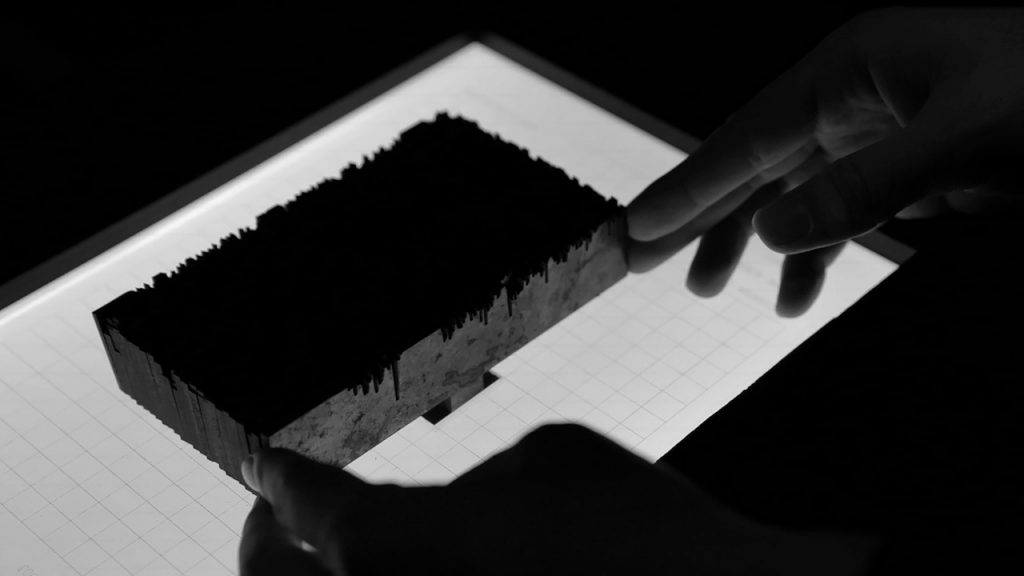
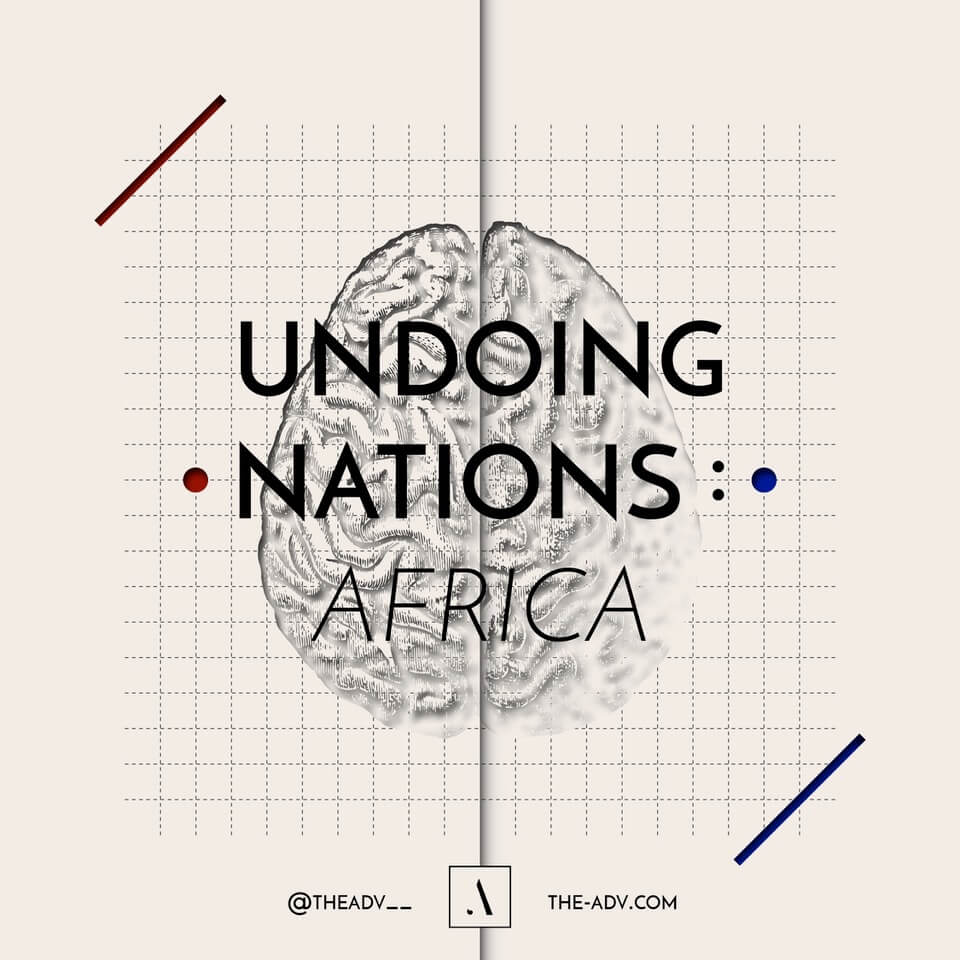
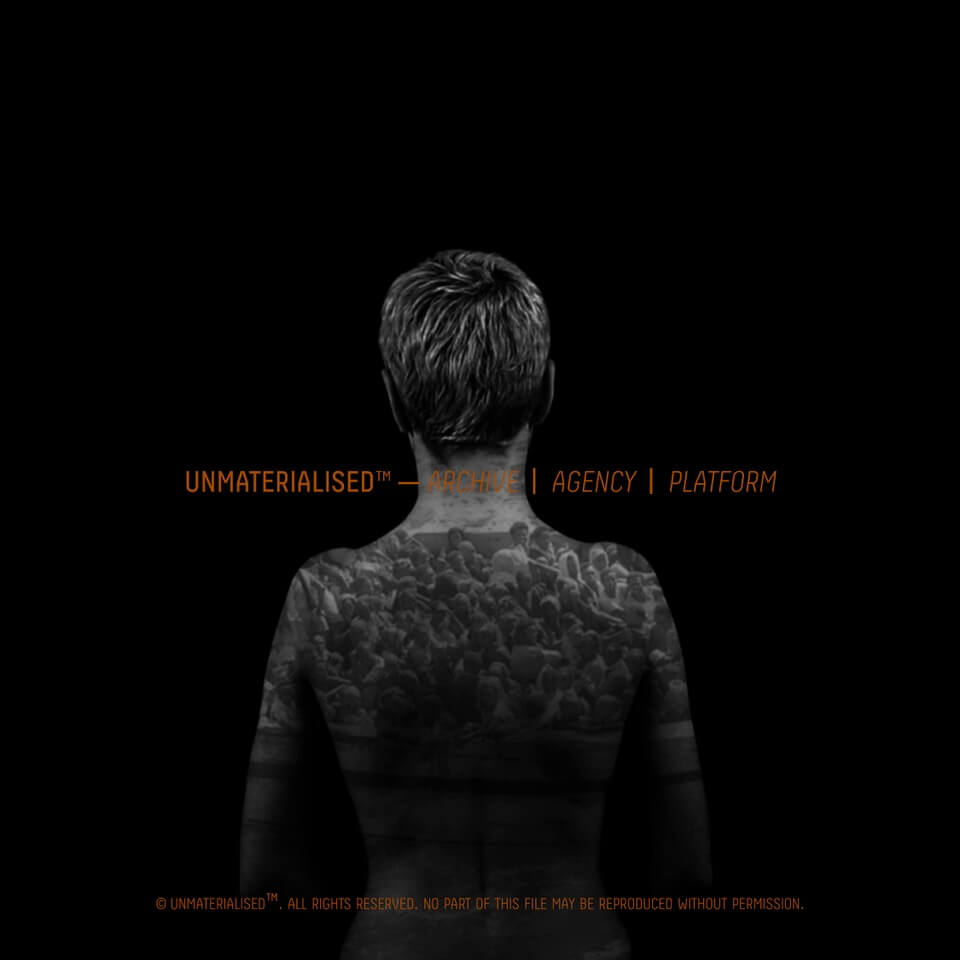
You are a Designer, Artist, Director and Writer and have a background in Graphic Design, interactions Design and Communication. Your practice encompasses multiple media (video, sound, film, storytelling…) but is based on research and intricate narratives to explore alternative or lost histories and unusual accounts, mainly referring to the African continent. How and when does the interest in these different disciplines and their interactions come about?
I’m sympathetic to anyone who tries to summarise my background and what I currently do, let alone try to understand how they all seem to converge. Regardless, I embrace the spectrum of realities I’ve been able to indulge in. Ultimately, my endeavours are built on three pillars; Design, Politics & Film. In regards to output, I find it slightly perplexing when “storytelling” is treated like a medium.
It’s a process of relaying data (information) to an audience consequently, the medium of choice, whether it be Film, Sound, Installation or anything else of that nature, is a discussion of effectiveness. When asked how and when these different disciplines intersect in my praxes, I’ve always taken the stance of ‘whichever method is most appropriate’ I’m not trying to force my research praxis into a singular medium… that’s just limiting. The fundamental intention when you attend an Unmaterialised™ or The Adv_™ Forum event is to get a glimpse into a specific individual’s psyche (not my own) that is researched based presented in a state of reverence. There is something about religious experiences that polarises people. It’s incredible to watch and a great catalyst for provoking an audience’s opinion.
It’s ironic. It would make sense as an African based in the UK, my work would refer to the African continent, but the truth is, the root of my research on Western narratives, beliefs and systems trace back to African scholars and civilisations, which were essentially sampled…
You have two main ongoing projects, UNMATERIALISED™ and THE ADV_™ Forum. Could you tell us a bit about them?
Unmaterialised™ is a research archive that explores the origin of key narratives, beliefs and systems — highlighting omissions, voids and/or inaccuracies resulting in a counterfactual scene.
Unmaterialised is for people who are conscious of the difference between truth and fact by the hand of politics, i.e. power. Inspired by George Orwell’s Ministry of Truth (1984), Simon Leys’s Essay ‘The Best Lies Tell The Truth, and Howard Zinn ‘The Politics of History’, just to name a few. Unmaterialised emerged as a means to strategically engineer doubt in “Popular Knowledge” to introduce alternative perspectives from unrecognised scholars, witnesses or evidence.
The Adv_™ is an immersive forum weaponising empathy for strategic embodiment and dialogue. The Adv_™ Forum was devised for those more intrigued by understanding than an accusation. It’s a place where you can empathise with controversial individuals across the spectrum of society; politics, pop culture etc… The objective is to provide participants with the Mindset/s necessary to make a local, national and global impact. Our Scenario/s set the scene for participants to identify motivations and clarify their intentions in order to develop new operational Framework/s* and tactics within public and private affairs.
Unlike Unmaterialised™, which explores ‘The Why,’ The Adv_™ explores and outlines ‘The How’ to the masses, challenging the idea of ‘Irresponsible Knowledge’. To date, both Unmaterialisded™ & The Adv_™ Forum are the amalgamation of all my interests and skill sets, which is a rare privilege.
What has been one of the most challenging projects you have developed and why?
Without a doubt, Unmaterialised: Union of African States… there was a lot at stake in this project. You can only imagine the number of iterations we went through, the balance between fact and strategic fiction and the heavy moral responsibility of articulating one of the most powerful speeches at one the most pivotal moments in African history. If you could only see the development work, you would be exhausted at the mere sight of it.
With the gravity of the event in question, it deserved nothing less than being the most expensive and robust cinematic installation we’ve created. The challenge wasn’t solely based on its authenticity but the three categorisations of audience experiences we needed to cater for simultaneously; Firstly, those who know nothing about The New York World Fair 1963 and Africa Affairs. Second, those who have a casual knowledge of significant dates and key individuals. Thirdly those who operate within African Affairs. A tall order, but when you actually make a gold, copper and silver mine on a restricted budget, I guess anything is possible.
Eventually, it leads to The Adv_™ Forum designing the scenario “Undoing Nations: Africa” with a diverse list of participants from Political Advisors, Philosophers, Designers, and Educators but to name a few. There was a good cross-section of society present, and the outcomes were more compromising than a holy man’s confessions.
Technology is becoming crucial in new societal developments. How is this or will be reflected in your practice?
Technology, in this case, is the bridge to new understandings. In the context of Unmaterialised™, we have no intention of having a permanent physical space. Currently, we are living in a digitally vicarious reality, where everything is on demand, and there is a lacking sense of urgency to be somewhere at a specific time and place. We’re exploring technologies to help us becomes masters of a moment with the option to evolve in each appearance of our work.
With that said, in the narrative of our work, we retell our research through the potential of the practice of Archeo-acoustics — the archaeology of sound from objects and spaces. As an evolving methodology, in the natural sciences, we realised that human civilisation was far more conscious of acoustics — from designing spaces to emit particular frequencies as hallucinogens to emitting sounds to distil water.
In the context of The Adv_™ Forum, technology is crucial in the act of creating space processes for the suspension of disbelief. In each scenario, we encourage our participants to feel comfortable abandoning their morality when necessary or sideline their conscience with respect to their objective. This only works if we can synthesise a seamless experience between identifying who they are, why they are and how they can achieve their desired goal. It’s amazingly scary what people are willing to do if you give them a safe space.
Afrofuturism, the cultural, aesthetic, philosophy of science, and philosophy of history movement, which became widespread in the late 1950s and explores the developing intersection of African/African Diaspora culture with technology, has seen its presence in art, fashion and design-related media increased noticeably in the last few years. Could you tell our audience what’s your take on the movement and its resurfacing these days?
Let me preface my comments with the fact that Afrofuturism has been a great tool for escapism from imminent and persistent oppression from the Western Culture and institutions, as well as linking the African Diaspora not to technology but to cohesion by picturing success and excellence in a place where they are scarce if present at all. Afrofuturism is a Western (American) invention, the term is trademarked by Mark Dery but expanded on by Ytasha Womack, but the practice predates both of them, most notably through Sun Ra and The Arkestra etc… just to give a little context.
Now that’s out the way. This is my issue…more times than not, Afrofuturism is either designing FOR the uninformed diaspora or designing AT indigenous Africans through a romanticised lens of primitivism. There is a lack of acknowledgement of the preexisting intellectual, cultural and technological advancements that superseded Europe & Asia in pre-colonial Africa. Let me put it another way, African ingenuity is not something to fantasise about in the future. The evidence is there, here and now. Build on that, secure it.
Salute to people like Jepchumba, Founder of African Digital Art. I hope more platforms or agencies develop in that same vain to make a more well-rounded practice of “Speculative Africa/ns”.
Where do you see your practice going into?
Naturally, I can see my praxes continuing with both Unmaterialised™ and The Adv_™ Forum as they are both entering their second phase. With regards to Unmaterialised™, it’s dabbled in cultural institutions (galleries & museums) around the world. We’ve come across so many monuments and historical sites which are now controversially presented as tourist attractions and, as a result, filtering data not to offend guests. I’m certain something special can be done with them in situ. There are layers to reveal.
We’ve also got some preparation underway in context to opening up Unmaterialised more as a platform.. more news on that towards the end of the year. The Adv_™ Forum has had the most verbalise of years, operating within Education, as an event during festivals and in private Consultancy. We aren’t limiting ourselves to any of our three established avenues, but we are definitely going to be exploring public events more vigorously. Encouraging people to come to explore empathy to almost questionable degrees and possibly sympathising with those they originally demonised. It’s going to be a conflicting experience.
What is your chief enemy of creativity?
That is a very good question… in the context of creativity, isolation and ignorance, without a doubt. Solitude is a dangerous thing as you are left without any choice but to recycle what you already know and what you’ve created. Solitude demands self-reflection in the most toxic circumstances, which distort reality, denying contrast. Creativity exists within friction and conflict, whether that be ideals, theories, methods or opinions.
You couldn’t live without…
Music, Elders & Food. Without this trifecta, where else would Peace, Wisdom & Innovation be discovered?

